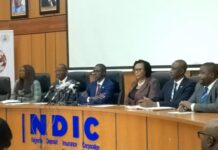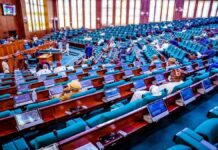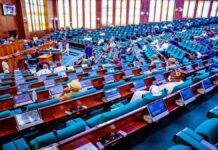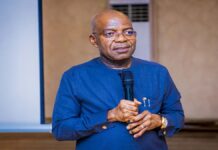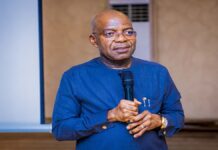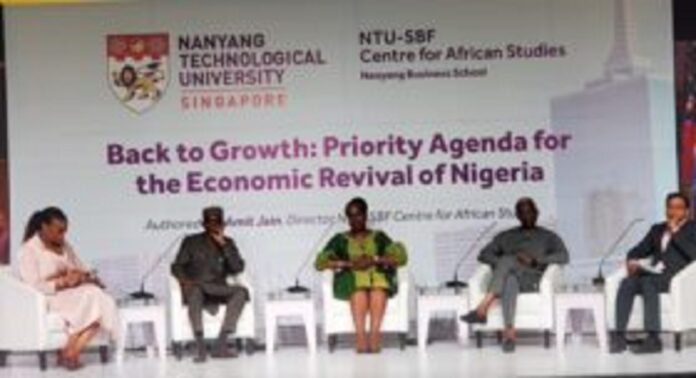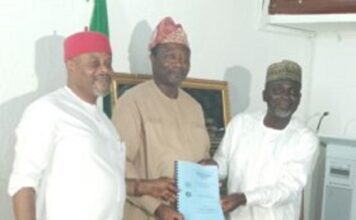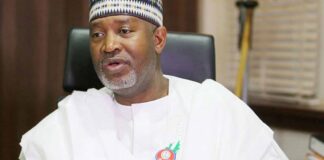Experts Suggest Actionable Recommendations to Drive Nigeria’s Economic Revival
Mr Amit Jain, Director, NTU-SBF Centre for African Studies, Nanyang Business School, Singapore, alongside some economic experts have suggested some actionable recommendations to engender Nigeria’s economic revival that could spur growth and development.
They made the recommendations on Monday in Lagos at the public presentation of a 10-year roadmap for Nigeria by NTU-SBF Centre for African Studies in partnership with Tolaram and Nanyang Technology University, Singapore.
NTU-SBF is Nanyang Technological University (NTU) and Singapore Business Federation (SBF).
The event has the theme, “Back to Growth: Priority Agenda for the Economic Revival of Nigeria”.
According to Jain, the roadmap aims to put Nigeria back on the path of sustainable growth and adhering to its recommendations will put the country among the top 20 economies of the world by 2030.
He stated that if the country could fix its structural problems in key sectors and global conditions permitting, the economy could start to grow beyond the current pace.
Jain, who said while the recommendations were achievable should there be the political will to make changes, stressed that interlinked factors limiting economic growth and development must be addressed.
“Irrespective of business terrain, you cannot afford to overlook Nigeria as what happens here affects everyone.
“Given the country’s strength of population, fertile soil, enough water, sunshine, large coastline, vibrant democracy and a vibrant youthful population, some weakness such as debt, limited fiscal space, poverty, infrastructure challenges exist.
“However, while there’s the threats of insecurity, corruption, unemployment, inequality and climate change, massive opportunities exist in agriculture, technology, services and its massive consumer demand, Nigeria needs to take steps to put country on the path of growth.
“And in the next two years, if Nigeria takes these steps, particularly to bring down inflation, growth can then occur,” he said.
Jain said Nigeria must revamp crude oil production quickly, to create the fiscal room that Nigeria needs.
He stated that the country in the next two years must focus on economic stabilisation, structural reforms to revive growth, prioritise investment in health, education and social protection and avert negative Gross Domestic Product (GDP) growth to arrest poverty.
He added that within the next five years, Nigeria should prioritise reviving growth, enhancing investment climate, improving business confidence, targeting four per cent GDP growth rate and reviving employment.
“Within the next ten years, what the country can do is sustain growth with focus on governance, deliver public goods and aim for seven per cent GDP growth rate while expanding employment opportunities.
“What government can do to revert the current economic trend line and improve business climate is to really curb inflation, reduce trade barriers, curb oil theft and insecurity and vamp up agroprocessing,” he said.
Dr Adedoyin Salami, Nigerian Economist, said Nigeria needs to consider how she begins to lay in the short term the foundation for middle term via re-establishing economic stabilisation over the next 12 months.
Salami stressed that education was where the country’s biggest investment must lie
“The country’s future prosperity is also dependent on her ability to build and sustain an agro economy which education can help achieve.
“If education is sorted, the speed at which our population is growing would come down and we can be more balanced to pursue the skill and enlightenment the country needs to grow,” he said.
Mrs Funke Opeke, Chief Executive Officer, Main One Cable Company, called for government’s commitment to driving economic growth.
Opeke advocated for concerted efforts to incentivise the private sector to deploy the infrastructure that drives digital technology growth in the country.
Mr Farouk Gumel, Group Executive Director and Executive Vice Chairman (Africa), Tropical General Investments (TGI) Group, stressed that every solution for the country must have a humanitarian aspect to its implementation.
This, he stated, must be done regardless of the party or dispensation in place.
“Infrastructure in rural areas is weak and we must begin infrastructure inclusion to get to the grassroot by starting to implement actionable plans right from the local government,” he said.





